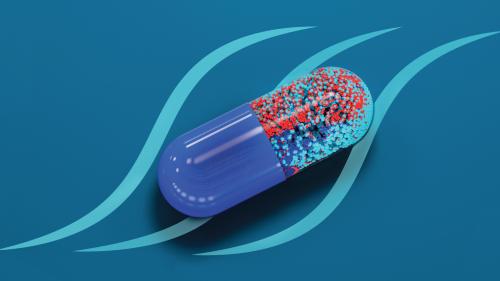Project Optimus
Reforming the dose optimization and dose selection paradigm in oncology

Purpose
The Oncology Center of Excellence (OCE) Project Optimus is an initiative to reform the dose optimization and dose selection paradigm in oncology drug development. Too often, the current paradigm for dose selection—based on cytotoxic chemotherapeutics—leads to doses and schedules of molecularly targeted therapies that are inadequately characterized before initiating registration trials.
Patients may be receiving these novel therapeutics for longer periods of time to maximize the benefit of a drug, which ideally includes not only longer survival but also an improved quality of life.
Poorly characterized dose and schedule may lead to selection of a dose that provides more toxicity without additional efficacy, severe toxicities that require a high rate of dose reductions, intolerable toxicities that lead to premature discontinuation and missed opportunity for continued benefit from the drug, and potentially persistent or irreversible toxicities that limit the options for receiving benefit of subsequent therapies—to name a few examples.
Goals
The goal of Project Optimus is to educate, innovate, and collaborate with companies, academia, professional societies, international regulatory authorities, and patients to move forward with a dose-finding and dose optimization paradigm across oncology that emphasizes selection of a dose or doses that maximizes not only the efficacy of a drug but the safety and tolerability as well.
Specific Goals include:
- Communicate expectations for dose-finding and dose optimization, through Guidance, workshops, other public meetings
- Provide opportunities for and encourage drug developers to meet with FDA Oncology Review Divisions early in their development programs, well before conducting trials intended for registration, to discuss dose-finding and dose optimization.
- Develop strategies for dose finding and dose optimization that leverages nonclinical and clinical data in dose selection, including randomized evaluations of a range of doses in trials. An emphasis of such strategies will be placed on performing these studies as early as possible in the development program and as efficiently as possible to bring promising new therapies to patients.
Optimus leads are Drs. Mirat Shah and Atik Rahman, and a wide range of expertise is represented among the entire project team including medical oncologists, clinical pharmacologists, pharmacologists-toxicologists, statisticians.
Oncology Dosing Tool Kit
A resource to support stakeholders in their decision-making regarding dosage optimization.
Publications
- The Retrofit: Lessons From Sotorasib's Dosing Conundrum. Singh H, Vellanki PJ, Pazdur R. J Clin Oncol. 2024 Oct 7:JCO2400310. doi: 10.1200/JCO.24.00310. PMID: 39374478.
- Improving Dose-Optimization Processes Used in Oncology Drug Development to Minimize Toxicity and Maximize Benefit to Patients. Fourie Zirkelbach J, Shah M, Vallejo J, Cheng J, Ayyoub A, Liu J, Hudson R, Sridhara R, Ison G, Amiri-Kordestani L, Tang S, Gwise T, Rahman A, Pazdur R, Theoret MR. J Clin Oncol. 2022 Sep 12:JCO2200371.
- How to Get the Dose Right. The ASCO Post. Mirat Shah, Atiqur Rahman, Marc R. Theoret, and Richard Pazdur. May 10, 2022.
- Optimizing Dosing in Oncology Drug Development Q&A. Friends of Cancer Research. April 7, 2022. Shah M, Rahman A, Theoret MR, Pazdur R.
- The Drug-Dosing Conundrum in Oncology - When Less Is More. N Engl J Med. 2021 Oct 14;385(16):1445-1447. doi: 10.1056/NEJMp2109826. PMID: 34623789.
- Friends of Cancer Research White Paper. Optimizing Dosing in Oncology Drug Development. Friends of Cancer Research Annual Meeting 2021.
FDA Guidance and Other Materials
- Optimizing the Dosage of Human Prescription Drugs and Biological Products for the Treatment of Oncologic Diseases (August 2024)
- ODAC Pediatric Oncology Subcommittee meeting on dosage optimization in pediatric drug development (June 16, 2023)
- Population Pharmacokinetics (February 2022)
- Exposure-Response Relationships — Study Design, Data Analysis, and Regulatory Applications (April 2003)
- ICH Topic E4: Dose-Response Information to Support Drug Registration (November 1994)

